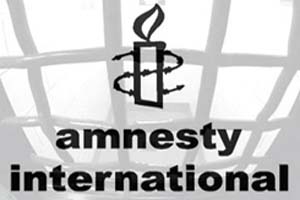Freedom from Torture
Civil Society Coalition against Torture and impunity in Tajikistan

On May 23, the international rights group, Amnesty International (AI), published its annual report, The Sate of the World’s Human Rights, for 2012.
AI has documented abuses in 159 countries and territories that it says were inflicted by those in power on those who stand in the way of their vested interests.
Amnesty International notes torture and other ill-treatment remained widespread and impunity for perpetrators continued in Tajikistan in 2012. There was no access to detention facilities for independent monitoring bodies. Freedom of expression was still under attack, despite some liberalization in the law.
“In July 2012, clashes between government and armed groups took place in Khorog, Gorno-Badakhshan Autonomous Region (GBAO). In some of the most intense fighting since the end of the 1992-1997 civil war, unofficial reports said some 150 people including soldiers and civilians were killed during a government military operation launched against forces loyal to the deputy commander of the Ishkashim border unit, former opposition leader in the civil war Tolib Ayombekov.”
The report says the government in March stated its intention to implement recommendations from the UN Human Rights Council’s Universal Periodic Review, such as ensuring detainees access to legal and medical assistance when in custody. In April, the Criminal Code was amended to include torture as a criminal offence. In June, the Supreme Court provided guidelines for judges in cases of alleged or suspected torture or other ill-treatment; and the General Prosecutor’s Office drafted recommendations for prosecutors on investigation of torture cases.
Despite these positive developments, reports of torture and other ill-treatment continued, the report said, noting that children, elderly people and witnesses in criminal cases reported instances of torture and other ill-treatment.
“Torture methods included the use of electric shocks, boiling water, suffocation, beatings, and burning with cigarettes. There were reports of rape and threats of rape in relation to female and male detainees, as well as psychological torture.”
The report noted that people accused of involvement in banned Islamic movements and Islamist groups or parties “were at particular risk of torture.”
“There were reports of people being abducted by Tajikistani security forces outside their territory and being forcibly returned to Tajikistan. In several cases, the authorities based extradition requests for people they alleged to be members of banned Islamic groups or Islamist parties on unreliable or incomplete information. The individuals said they were tortured after their return.”
Victims of torture and their relatives were reportedly afraid to lodge complaints with prosecutor’s offices, fearing reprisals.
The authorities denied access to detention facilities for independent monitors, including the ICRC and local NGOs.
The authorities reportedly failed to protect the lives of people in custody. Deaths in custody were not investigated effectively and officials were rarely punished.
The report says that Tajik authorities continued to restrict the freedom of expression of human rights activists and journalists in 2012.
“On August2, the Criminal Code was amended to decriminalize libel, although penalties remained for insulting the President. However, there were continuing reports of government attempts to restrict the right to freedom of expression of human rights activists, lawyers, medical experts and journalists.
“In October, Khujand city court ruled to shut down Amparo, a human rights organization monitoring abuses in the army, allegedly for administrative violations. Human rights activists believed the decision was politically motivated and that the charges against Amparo were unsubstantiated.”
Founded in London in 1961, Amnesty International is a non-governmental organization focused on human rights with over 3 million members and supporters around the world. The objective of the organization is to conduct research and generate action to prevent and end grave abuses of human rights, and to demand justice for those whose rights have been violated. The organization was awarded the 1977 Nobel Peace Prize for its “campaign against torture,” and the United Nations Prize in the Field of Human Rights in 1978.